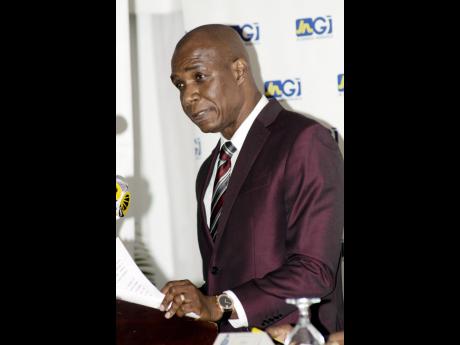Car dealer and client beat POCA charge over large cash transaction
A criminal case in which a car dealer and his client triumphed over prosecutors in a POCA-related case involving large sums of cash is being touted as a game-changer for the used car sector, whose members have typically pled guilty to similar charges in past cases.
The Proceeds of Crime Act limits the size of cash transactions to $1 million, but up to January, arresting officers had been applying the limit to the value of the transaction and not the size of the payments, even in the absence of fraudulent activity.
However, in the case in which Auto Channel Limited and car buyer Chazmo Barrett were indicted for breaching the cash limit three years ago, their attorney Caroline Hay successfully argued that the law allows for legitimate transactions and that Barrett's purchase fell into that category.
Describing the case tried in the Half-Way Tree criminal court in January 2018, Hay told the Financial Gleaner that her clients were charged in relation to a $1.85 million purchase of a vehicle by Barrett from Auto Channel, a preowned car dealership operated by Lynvalle Hamilton.
He made a down payment of $50,000 on the vehicle via transfer to the car dealer's bank account, and subsequently paid the rest in instalments over four months, none of which were above a $1 million.
"The police, for reasons unknown to them, searched his house on an unrelated matter and found the receipts issued by Auto Channel in relation to the purchase of the car. Those receipts, when they totted up the payments, were $1.85 million," said Hay.
"They concluded that it was a breach of Section 101A [of POCA] because the police up to that point had been interpreting that provision to say that once complete, any transaction in cash for over $1 million is a criminal offence ... . They also charged Hamilton for selling the vehicle for cash."
CRITICAL WORD
The lawyer said the statute itself lays out two ways in which an offence occurs: "whether you do one transaction in excess of a million straight, or you artificially - that's the critical word - separate the transaction so as to make it look like less than a million dollars when it is for more. The police have been ignoring the word 'artificially'".
Hay, who is a former state prosecutor in the Office of the Director of Public Prosecutions, but who now runs a company offering both legal services and Anti-Money Laundering and Countering Financing of Terrorism training and support, says previous convictions obtained by the state claiming breach of the law will now come in for closer scrutiny.
But she also noted that for past cases in which other car dealers pled guilty, they had limited recourse in getting their money laundering convictions reversed as the criminal court does not issue judgments and is not a court of record.
Hamilton, who is also the current president of the Jamaica Used Car Dealers Association, referred requests for comment to Hay. But earlier this year, he disclosed at the annual meeting of the group that five dealers had faced similar charges as himself in the past - four of whom pled guilty.
"Every dealer that was charged pled guilty, except one," he said. "Well, the courts have recently confirmed that the police was wrong. It was made abundantly clear that it is lawful for persons or businesses to pay or receive cash in excess of a million dollars, through the separation of several activities which makes one transaction, so long as those activities are not artificially separated."
The DPP's office promised a response on the implications of the Auto Channel-Barrett case by the end of the week.

